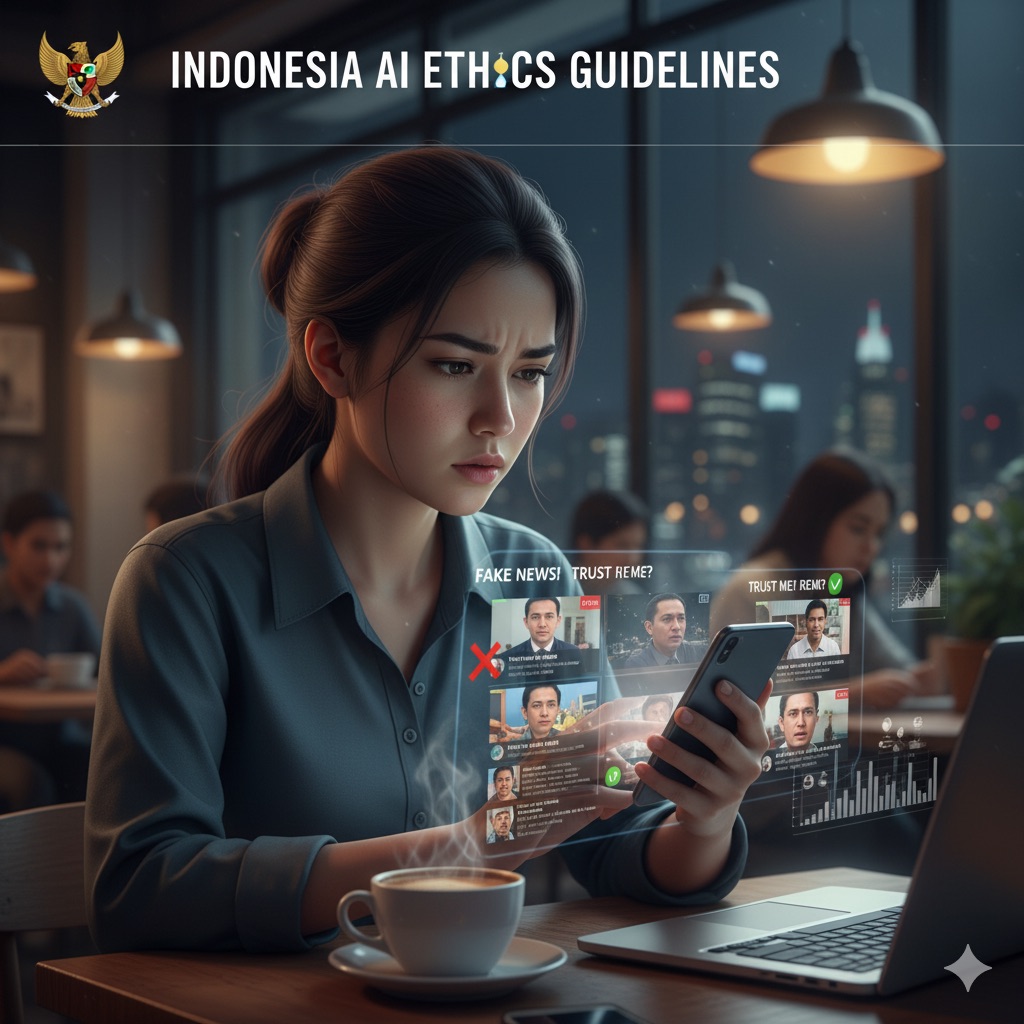Self-Assessment Framework Targets Deepfakes and Disinformation with Industry-Led Compliance Approach
The Indonesian government is moving forward with plans to establish AI ethics guidelines through a Presidential Regulation, marking a significant step in addressing the proliferation of deepfakes and disinformation generated by artificial intelligence systems. The policy framework introduces an innovative self-assessment mechanism that empowers AI developers while maintaining regulatory oversight, representing a balanced approach to AI governance in the region.
Regulatory Impact: Developer-Centric Framework Preserves Industry Innovation Autonomy
Aju Widya Sari, Director of Artificial Intelligence and New Technology Ecosystems at the Ministry of Communication and Digital, emphasized that “These guidelines will help developers take precautions when building AI systems. Each sector can use them to create their own rules.” The government has designed an evaluation mechanism through an incident reporting system that encourages self-assessment by AI developers, moving away from traditional top-down regulatory approaches. This bottom-up methodology allows industry stakeholders to internalize ethical standards while maintaining innovation capabilities. The inclusion of disinformation prevention as a key example in the government’s Quick Wins program demonstrates concrete implementation pathways for responsible AI utilization, addressing democratic processes threatened by misleading AI-generated content.
Compliance Requirements: Ten Core Principles Establish Comprehensive Ethical Governance Structure
The draft guidelines establish ten fundamental ethical principles: inclusiveness, humanity, safety, accessibility, transparency, credibility, accountability, personal data protection, sustainable development and environment, and intellectual property rights. The government positions these ethical values as essential foundations for AI development, implementation, and utilization, with particular emphasis on implications for fundamental human rights. Developers must consider the broader societal impact of their AI systems throughout the development lifecycle. The phased evaluation approach ensures gradual implementation of ethical and responsible AI governance, with detailed requirements to be finalized following public consultations concluded on August 29, 2025.
Industry Response: Enhanced Anti-Disinformation Capabilities Drive Regulatory Acceptance
The government’s disclosure that it handled over 1.4 million pieces of harmful content—including disinformation—between January and August 2025 underscores the scale of digital threats requiring regulatory intervention. Industry stakeholders have responded positively to the self-assessment centered approach, viewing it as a pragmatic framework that enables social responsibility fulfillment without stifling innovation. The flexibility allowing developers to create sector-specific rules addresses concerns about one-size-fits-all regulatory constraints, demonstrating policy design that accommodates diverse industry needs while maintaining ethical standards.
International Trends: Emerging as Regional AI Regulatory Leadership Model
Indonesia’s AI ethics framework distinguishes itself from the EU’s risk-tier based AI Act and Singapore’s AI Verify testing framework through its emphasis on developer autonomy coupled with legal enforceability. The Presidential Regulation approach provides binding legal force while maximizing industry self-governance, positioning the policy as a potential model for other Asian nations developing AI regulatory frameworks. The integration with the National AI Roadmap creates a systematic foundation for ethical AI development that aligns with global AI ethics standards while preserving national policy autonomy. This balanced approach between international harmonization and domestic innovation priorities represents a sophisticated regulatory strategy that could influence regional AI governance development trends.

